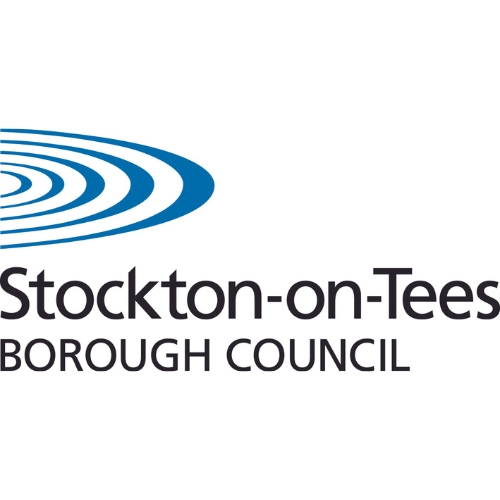Some of our Partners:
Overview
By completing the Data Technician Apprenticeship (Level 3) you will gain a qualification equivalent to two A-level passes. Taking approximately 18-24 months to complete, this programme is an ideal career progression route into Data Analysis. Typical job roles associated with the programme can vary from sector-to-sector. Some examples include Data Support Analyst, Data Technician, Junior Data Analyst and Junior Information Analyst etc.
There are no standardised eligibility criteria for this qualification. This means the individual employer will decide if a candidate is suitable.
Start date: Flexible
Typical duration: 18-24 Months (depending on hours worked each week)
Location: Nationwide (England)
Data Technician Apprenticeship Features
Throughout the apprenticeship, you’ll gain the skills, knowledge and behaviours needed for your chosen role and industry. To help you with this, you can expect to study the following subject areas:
- Sourcing Data
- Collating and Formatting Data
- Analysing Data
- Communicating Data Analysis
- Data Protection
- Sustainability in Data
During your apprenticeship you will gather evidence as part of a portfolio to demonstrate your knowledge, skills and behaviours.
This will include:
- Completion of workbooks and knowledge questions.
- Virtual observations, carried out in line with data protection and GDPR requirements.
- Recorded professional discussions to capture reflective learning and understanding.
- Witness testimonies from managers to verify on-the-job performance and competence.
Forget about lugging around all your work. The online iLearner e-portfolio system means all your work can be uploaded directly to your account and accessed wherever you go.
The system is easy to navigate and full guidance will be provided through our iLearner handbook and from your tutor through one-to-one support.
Off-the-Job Training
Off-the-job (OTJ) training is a mandatory part of all apprenticeships funded by the Department for Education. Each apprenticeship standard has a set number of OTJ training hours that must be planned and completed. If you have no prior learning and your apprenticeship duration and funding have not been reduced, you are expected to complete the full number of OTJ hours as specified in the standard.
There is no requirement to increase OTJ hours for part-time apprentices. This includes those working less than 30 hours per week or on zero-hour contracts. The training must be realistic and aligned with the standard’s set requirements.
OTJ training takes place during your normal working hours and involves learning activities that are directly related to your apprenticeship. This could include one-to-one sessions with a tutor, preparing for assessments, role-playing workplace scenarios, attending training sessions or webinars on key industry topics and individual study time to complete coursework.
To check the minimum required hours for your apprenticeship, please use the link below:
View Apprenticeship Hours Requirements
Functional Skills
Functional Skills maths and English are an essential part of many apprenticeship courses. Apprentices aged 16-18 who have not previously achieved GCSE Grade 4/C (or an equivalent qualification) are required to complete and achieve their Functional Skills qualifications. However, for adult apprentices (19+), Functional Skills are now optional and not a mandatory requirement for completing an apprenticeship. The decision is for the employer and the learner to decide whether to undertake these qualifications.
Benefits of completing Functional Skills:
- Some higher-level roles and further qualifications require maths and English at Level 1 or 2. Completing Functional Skills can open doors to promotions and further education.
- Strong communication and numerical skills are essential in most job roles, helping with tasks like report writing, budgeting, and problem-solving.
- Functional Skills help with real-life tasks, such as managing finances, understanding contracts, and effective communication in personal and professional settings.
- Functional Skills are designed to be practical and flexible, meaning they can be tailored to fit around your apprenticeship work.
The End-Point Assessment
As part of your qualification, you will complete End Point Assessments (EPA) to demonstrate the skills, knowledge and behaviours you have developed through our programme. You can achieve either a Pass, Merit or Distinction based on your final grade.
For the Data Technician Apprenticeship, the EPA consists of the following:
Professional Discussion
Once your portfolio is ready, you will complete a professional discussion with one of our independent assessors. You will be required to showcase any additional learning you have completed during the apprenticeship. This additional learning can be both formal or informal learning completed or any assignments and projects you have completed.
Scenario Demonstrations
Additionally, you will be working on the creation of data analysis scenarios to showcase your understanding of data analysis and its use in your business. The final assessment will be a demonstration showcasing your input and work on the scenarios and the skills and knowledge you developed by working on this.
Go Further
Once you have completed this qualification at Level 3, there are several progression routes available;
Contact us for further information!
Call us on 01246 278931, email info@apprenticeteam.co.uk or fill in the contact form below to check availability and for further advice about the next steps.
Our team will be happy to advise you on additional programmes we provide and can help point you in the right direction for any learning requirement not delivered by Apprentice Team Ltd.




















